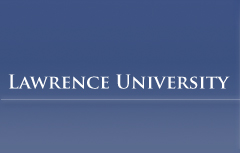Document Type
Press Release
Publication Date
11-20-2004
Abstract
The crucial role played by one of Earth’s tiniest and most abundant life forms — microbes — in one of the planet’s biggest challenges — global warming — will be the focus of a Lawrence University Science Hall Colloquium.
David Kirchman, a 1976 Lawrence graduate and the Maxwell P. and Mildred H. Harrington Professor of Marine Studies at the University of Delaware, presents “Global Climate Change from a Microbial Ecologist’s View” Friday, Dec. 3 at 12:15 p.m. in Science Hall, Room 102.
Since the start of the Industrial Revolution, man has been altering the earth’s climate through the release of several gigatons of greenhouse gases into the atmosphere every year, resulting in a gradual upward rise in global temperatures.
To better predict the impact of the greenhouse gas effect, Kirchman is studying various microbes — marine phytoplankton, bacteria and archaea — because of their abilities to affect the production and consumption of carbon dioxide and some of the other greenhouse gases.
Kirchman will detail his research with bacterial microbes, particularly those found in the western Arctic Ocean, and the processes they control in the global carbon cycle. He also will discuss the genetic potential of microbes in the oceans using genomic and other molecular approaches.
A magna cum laude graduate from Lawrence with a degree in biology, Kirchman earned his Ph.D. in environmental engineering from Harvard University. He is the editor of the 2000 book “Microbial Ecology of the Oceans.”
Recommended Citation
Lawrence University, "Marine Biologist Examines Role of Oceanic Microbes in Global Warming in LU Sci Hall Lecture" (2004). Press Releases. 347.
https://lux.lawrence.edu/pressreleases/347
